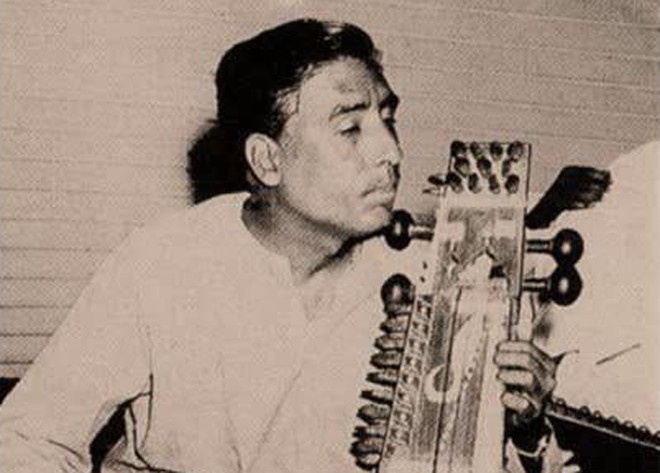
If the state has woken up to Ustad Nathu Khan’s greatness after all these years, it should have rewarded him with a higher award

In this year’s Honours List, Ustad Nathu Khan the famous sarangi player who died about forty four years ago was given the President’s Medal for the Pride of Performance. The award ceremony will be held in on March 23 next year as per the official ritual.
Ustad Nathu Khan was previously also given the same award and what is strange and a little incredible is that the same award has been bestowed upon him after all these years. It would have been more in the scheme of things if it were a higher award. If, after all these years, the state had woken up to his greatness and wanted to honour him once again, it should have been on a higher and bigger scale than before.
One does not know of the rationale of rewarding a person again and again with the same award. It is possible that a person for whatever reason had been sidelined or ignored or discriminated against while he was living and the state, with the advantage of hindsight, decided to compensate by announcing a posthumous award but, in this case, it’s a little incomprehensible because the award had been announced and received earlier as well.
This practice of giving the same awards after a gap has been in vogue for some time and appears strange because, after some years, logically, it should be followed by a higher award. The other reason that comes to mind is that certain awards carry a cash benefit with them and are probably seen as some kind of a monetary assistance to artistes who are forever struggling to eke out a living. The logical answer to this oddity is that all awards should carry a monetary tag with them. It harms no one if there is some monetary compensation to go along with merit, least of all the recipient.
Four regional clusters have produced the largest number of sarangi players -- a group of towns and cities around Delhi (Sonipat, Panipat, Jhajjar, Kirana, Meerat, Muradabad), Banaras, Amritsar and Kasur. The Amritsar school of sarangi players is one of the most distinguished schools in the Punjab. It consists of both sarangi and tabla players. Interrelated through marriage, these current players of the gharana believe that Mian Sandhi Khan was the first recognised player of classical playing in the later half of the 19th century.
Belonging to the Amritsar school as a sarangi player, Ustad Nathu Khan was truly outstanding. Sarangi, a very difficult instrument to play, is particularly of value because it can enunciate the nuances and subtleties that characterise our vocal music. It became a leading instrument with kheyal and thumri rendition during the course of the last two centuries, for it fully complemented the intonation embedded in the unfolding of raag-based music.
According to many, the illustrious Ustad Nathu Khan was perhaps the greatest sarangi player this entire region has produced. He was born in Amritsar in 1920, his father Baba Ballay was a tabla player and he got his initial training of sarangi playing from his uncle Ferozdin and other elders of the family. Later, he became a formal disciple of the great Ahmadi Khan of Delhi. He also learned the intricacies of classical music from Maula Buksh of Talwandi Gharana. After partition he became a staff artist with Radio Pakistan, Karachi.
From a very young age he showed great promise and, in the very first public performance in a sarangi festival held in Amritsar, his rendition of raga shudh sarang was so complete and skill levels so high that all other sarangi players refused to play after him for fear of comparison. He was the master of rhythm, and his tayyari and laykari were unmatched. Apart from playing fast and in complex rhythmic patterns, his taans were also lightening fast which are probably still unmatched.
He was amongst the pioneers who introduced solo sarangi playing in Pakistan and was undoubtedly the best solo sarangi player this region has produced. His rendition of ragas showed his deep knowledge of our classical music as well as his complete command over this difficult instrument. He was also a great accompanist and accompanied almost all the great vocalist of his time like Ustads Ashiq Ali Khan Bade Ghulam Ali Khan, Salamat Ali Nazakat Ali, Roshanara Begum, Umeed Ali Khan. Ustad Salamat Ali Khan called him "camera", admitting to his amazing photographic memory that enables the melodic line of the vocalist to be reproduced on the sarangi within split seconds. According to Ustad Salamat Ali Khan, he was the best accompanist he ever sang with; Ram Narayan being the second best.
He travelled the world over and got international recognition He was amongst the very few sarangi players who were also good composers. He composed many songs for films and radio, during his association with Radio Pakistan, Karachi. As a composer he used the name N.K. Naseer. He died in 1971 after a short illness while on a tour to Europe.